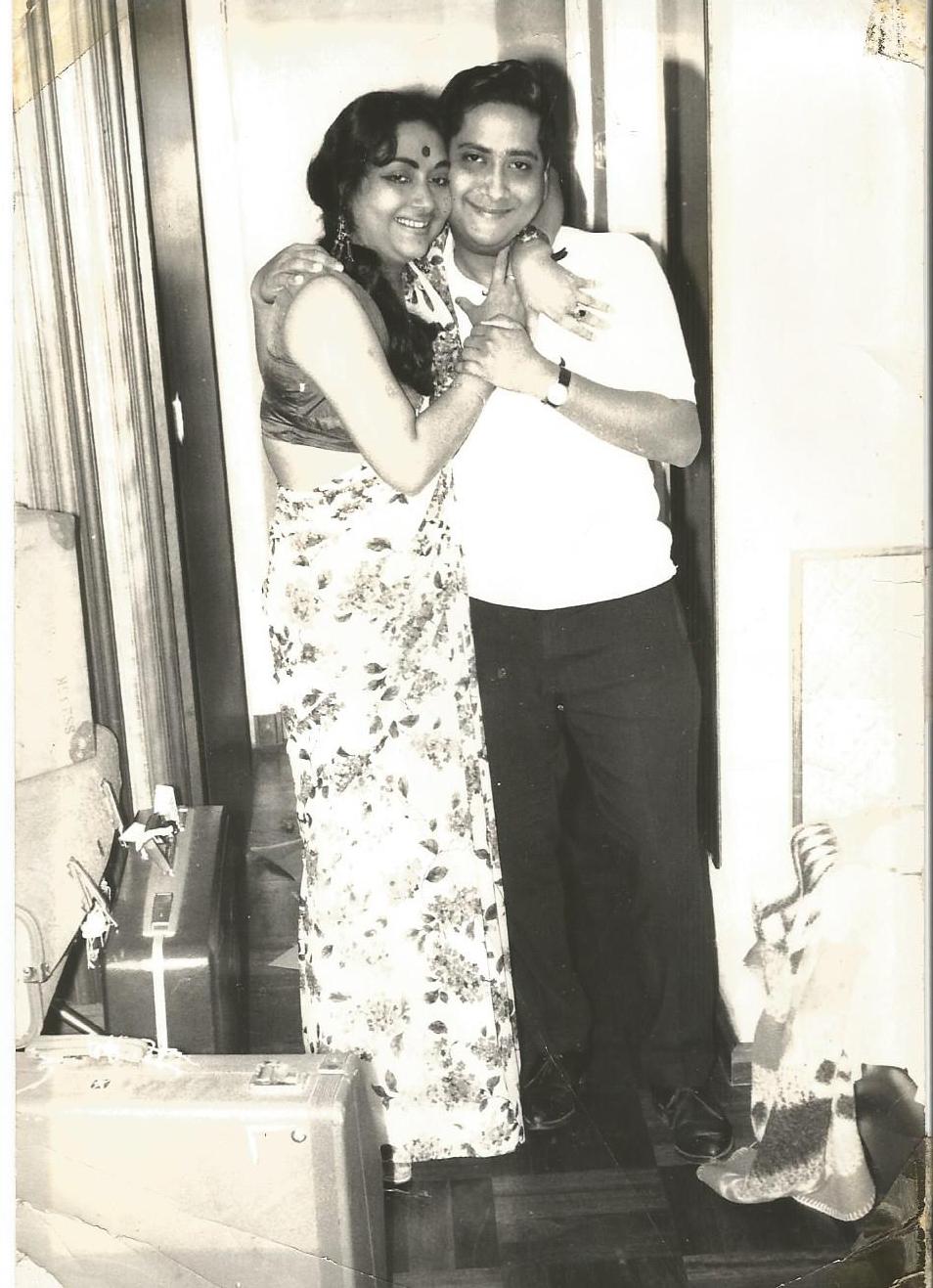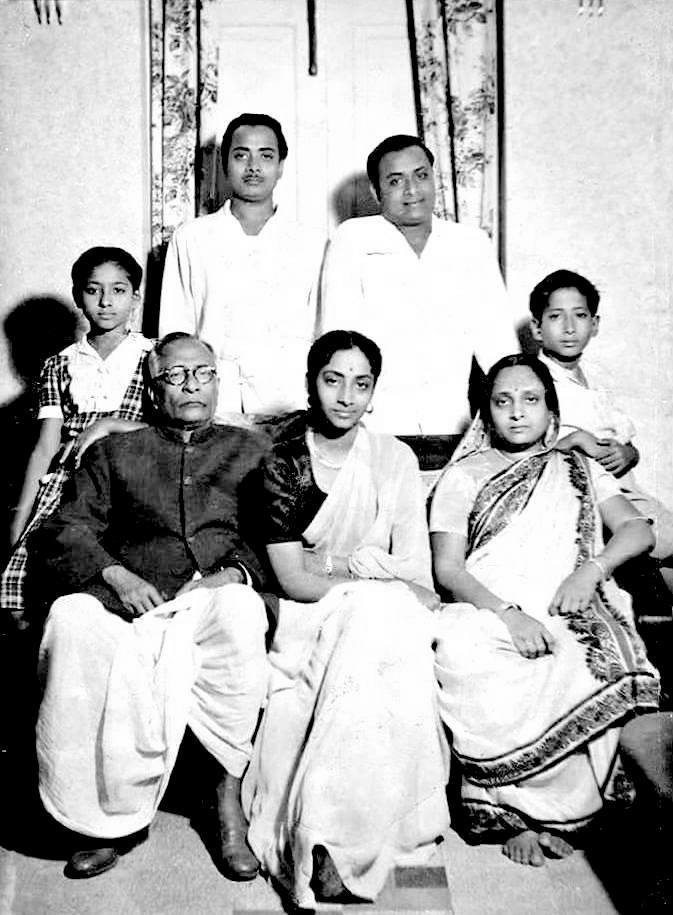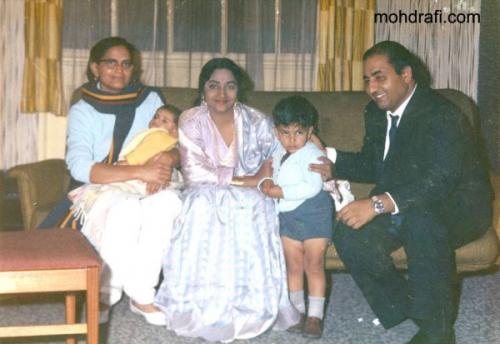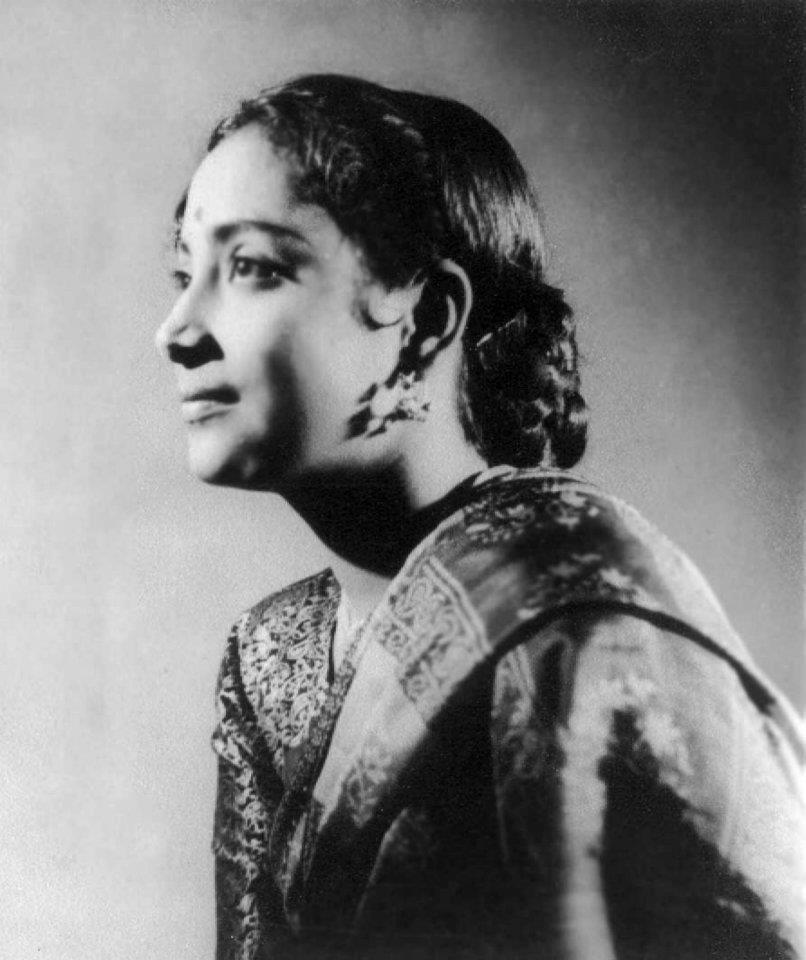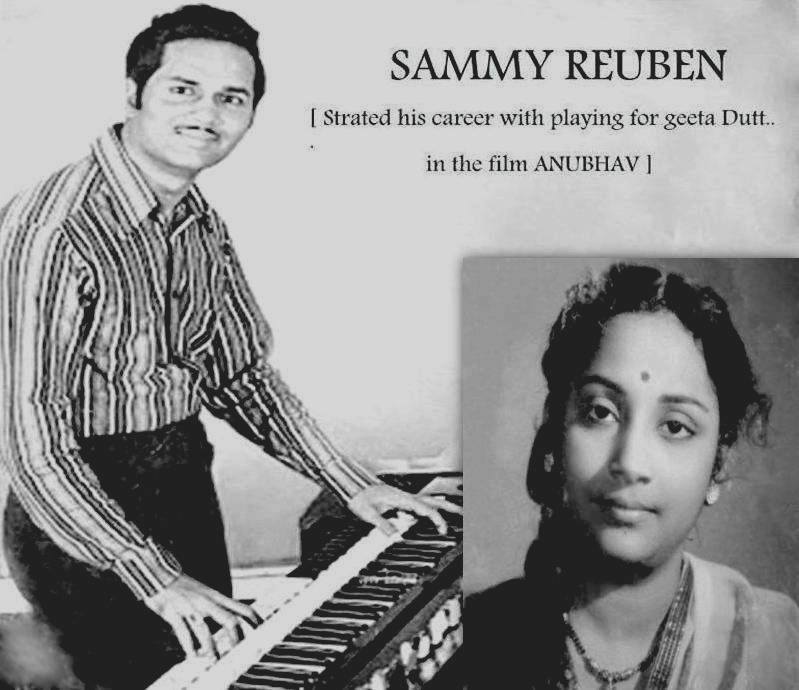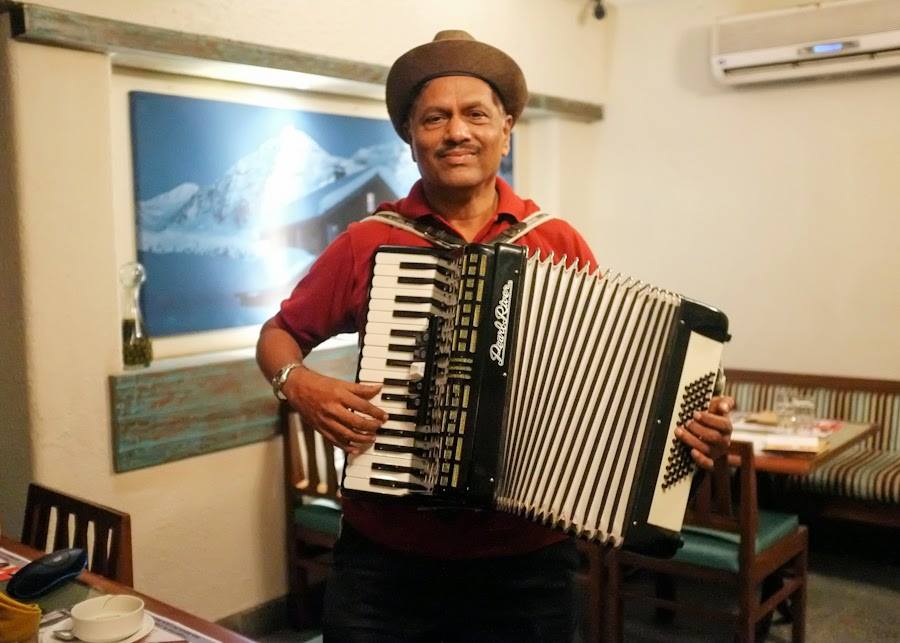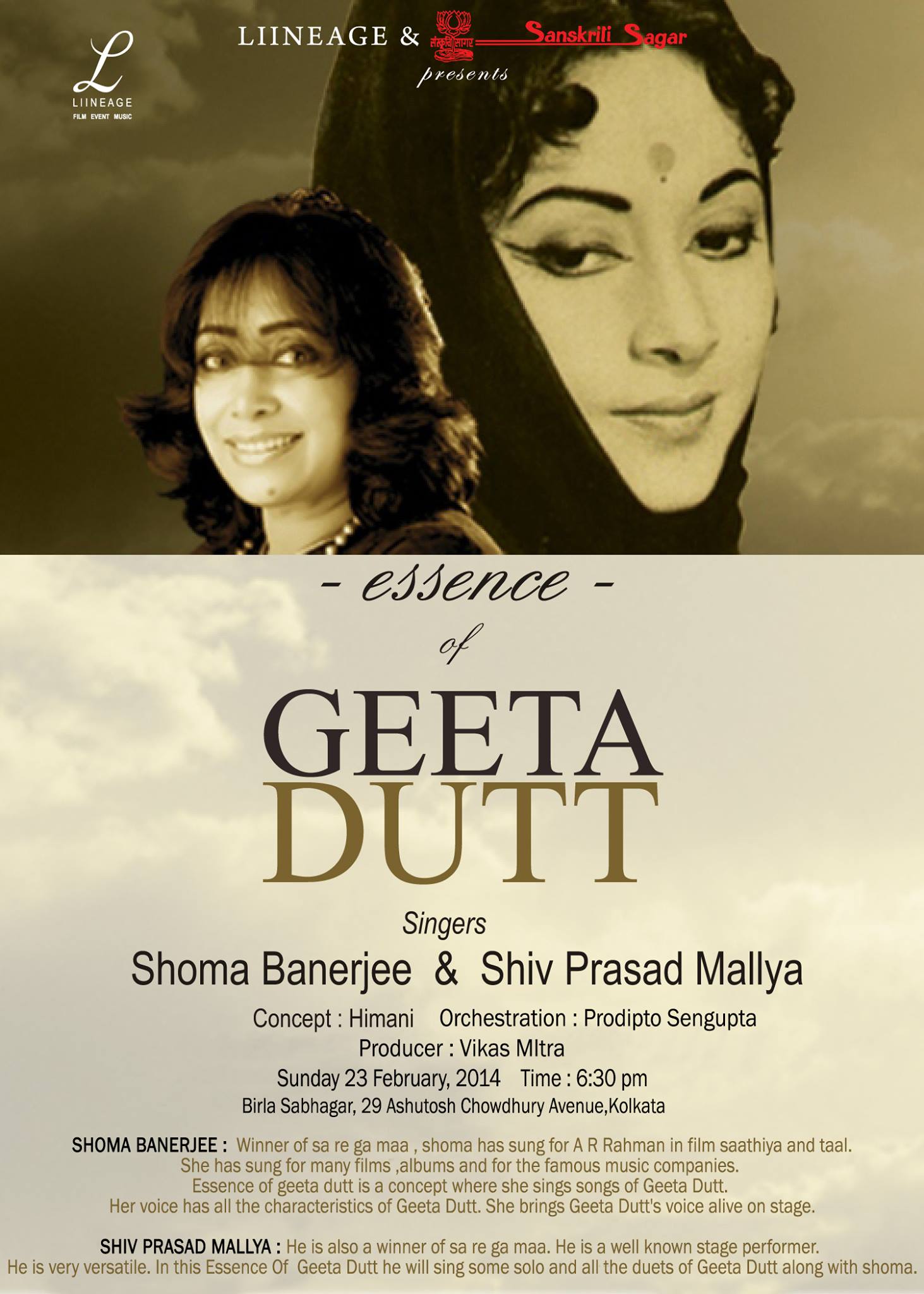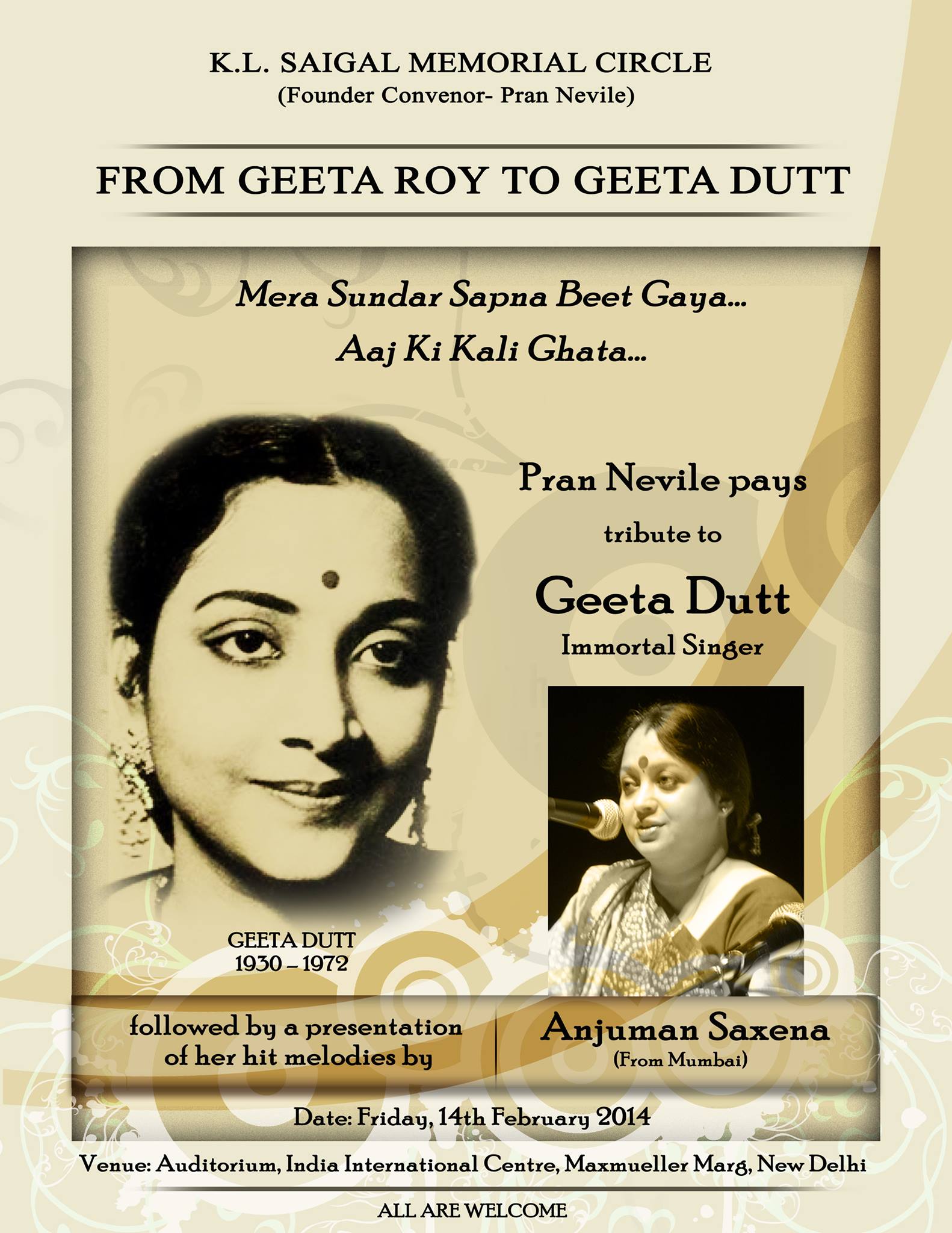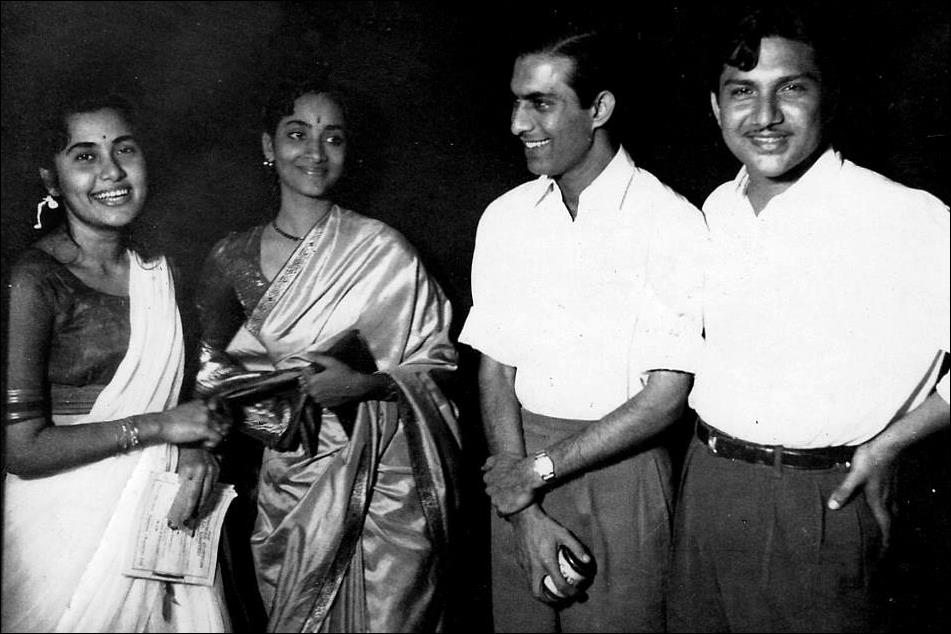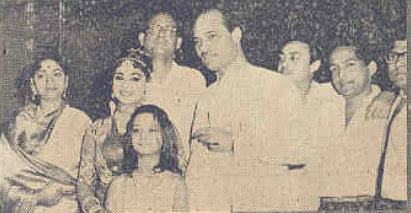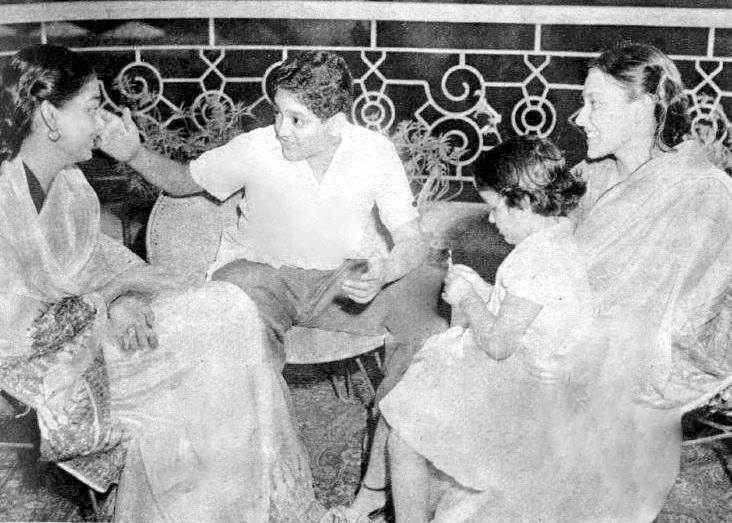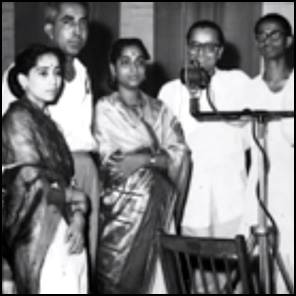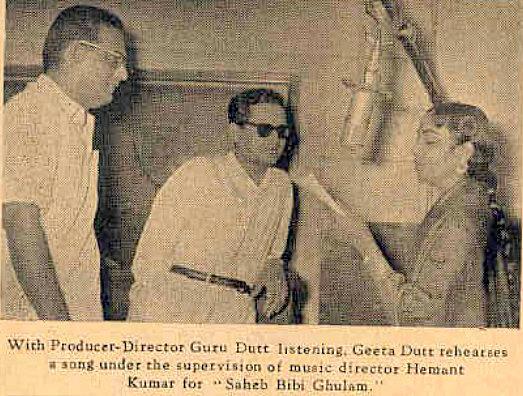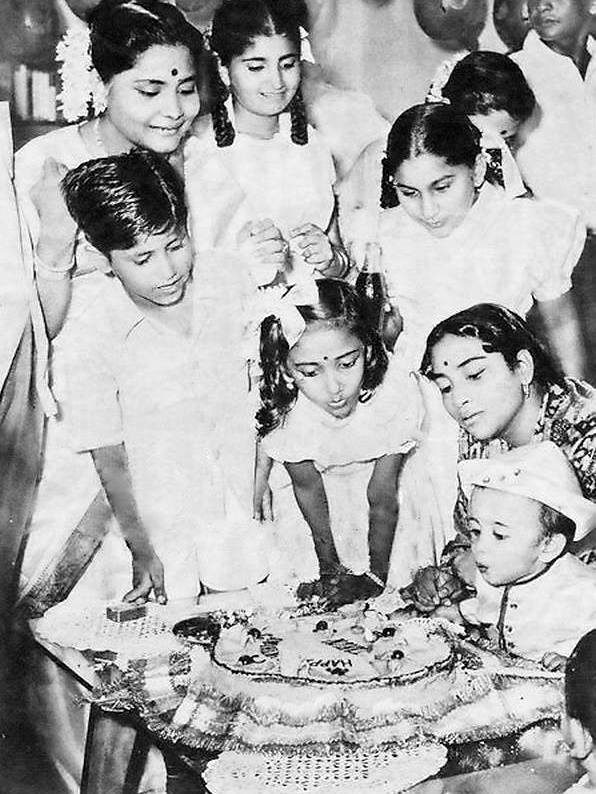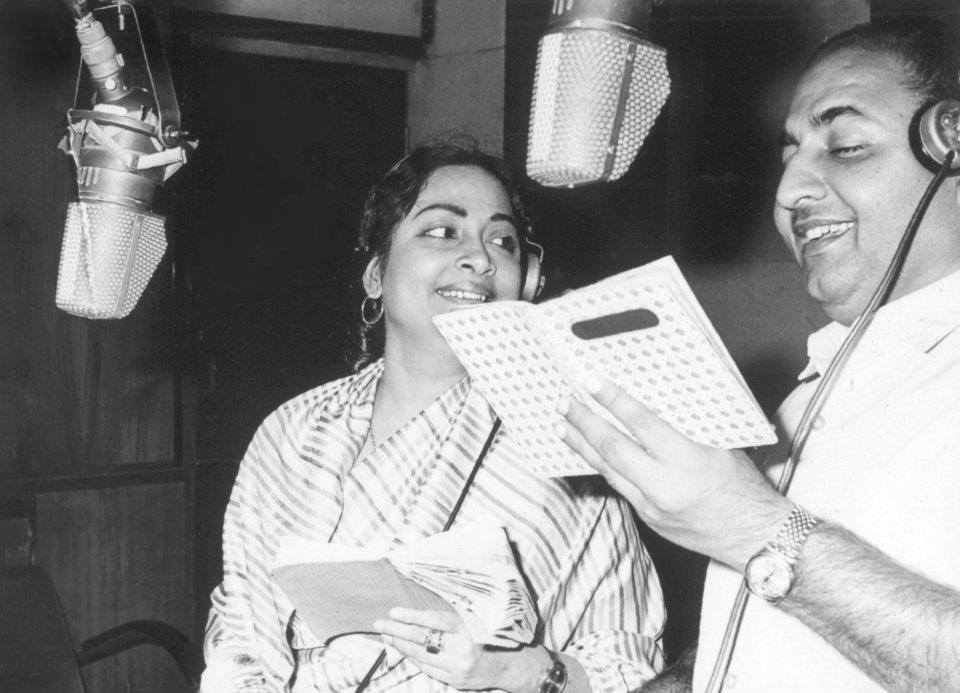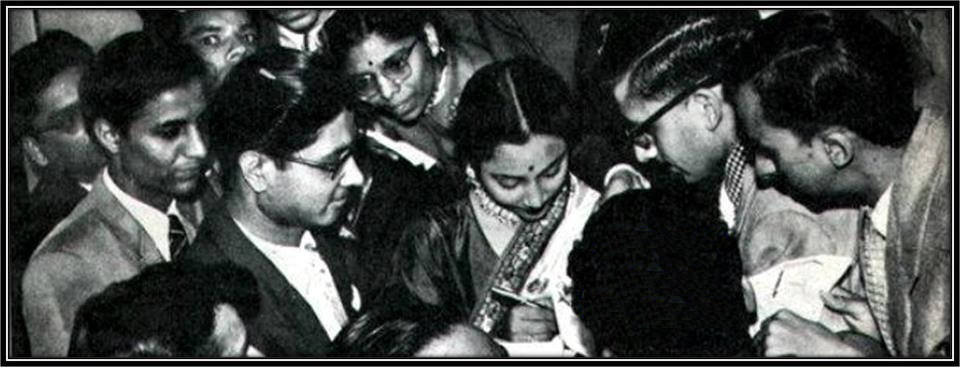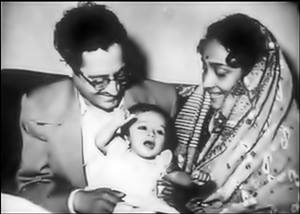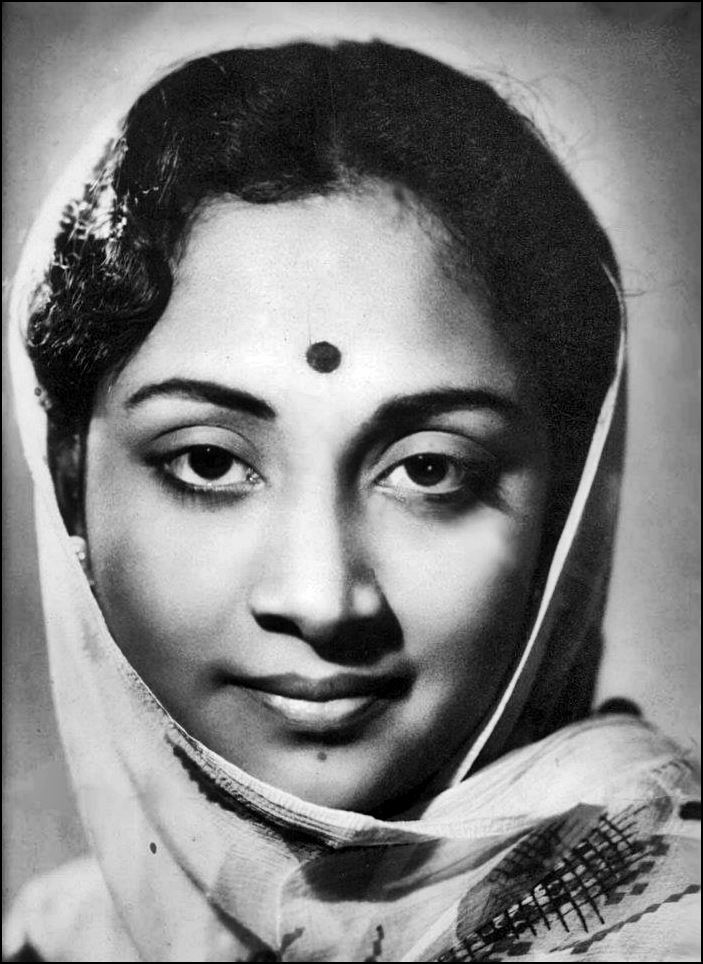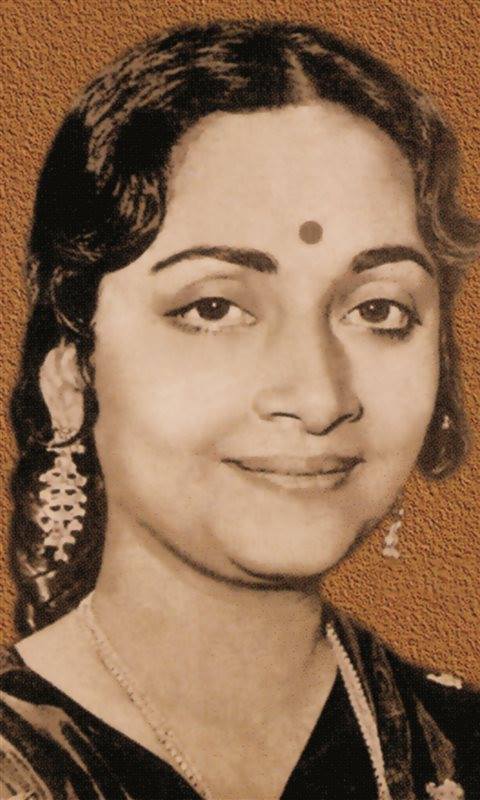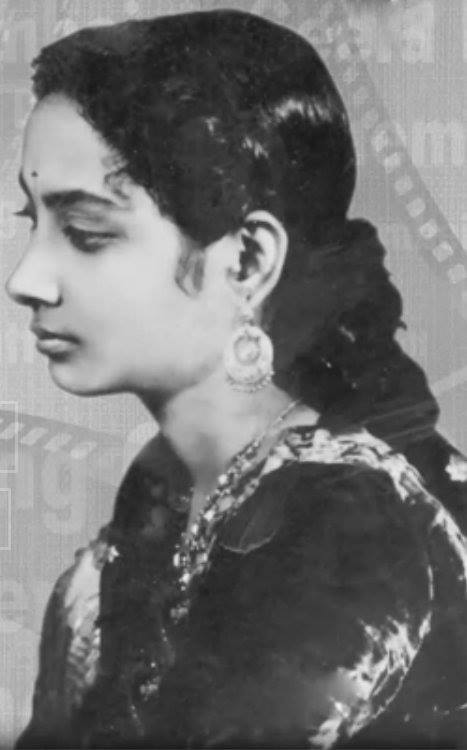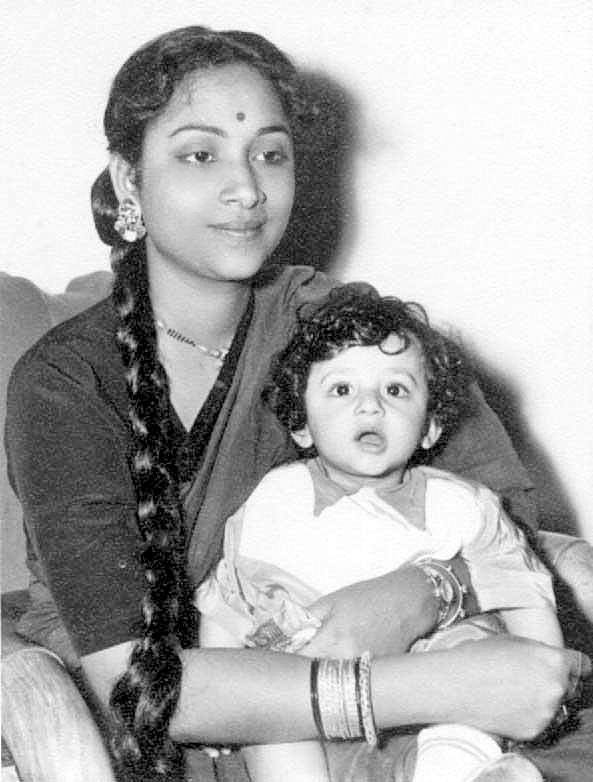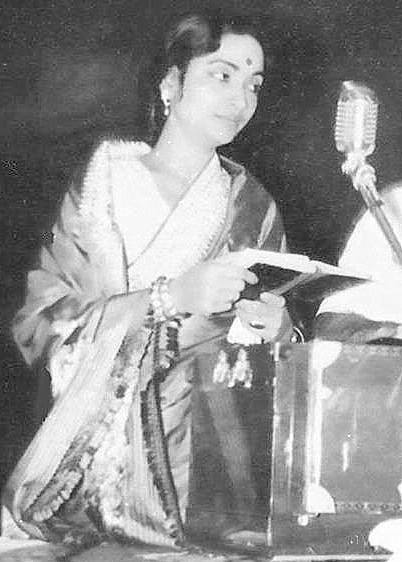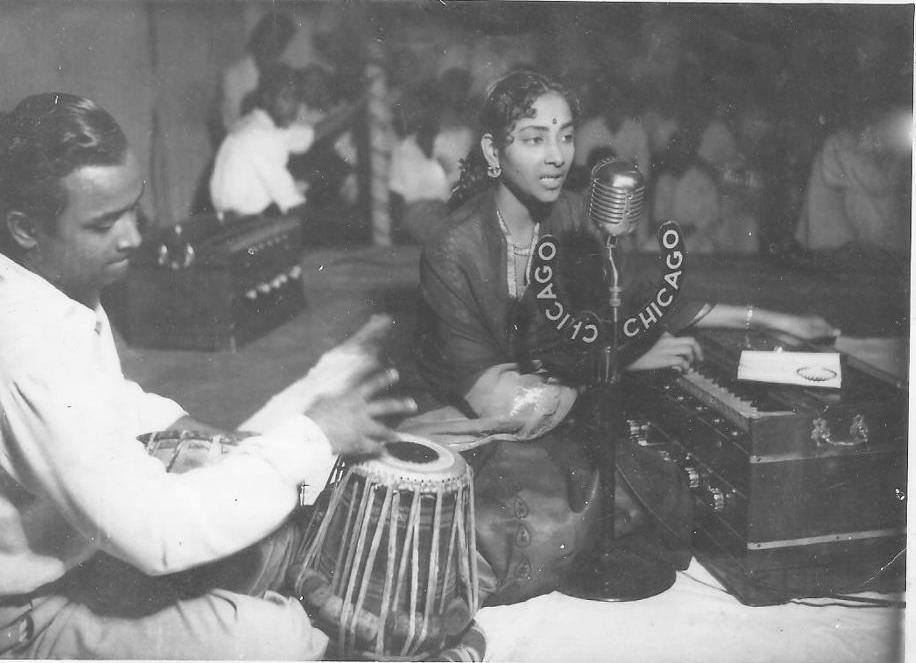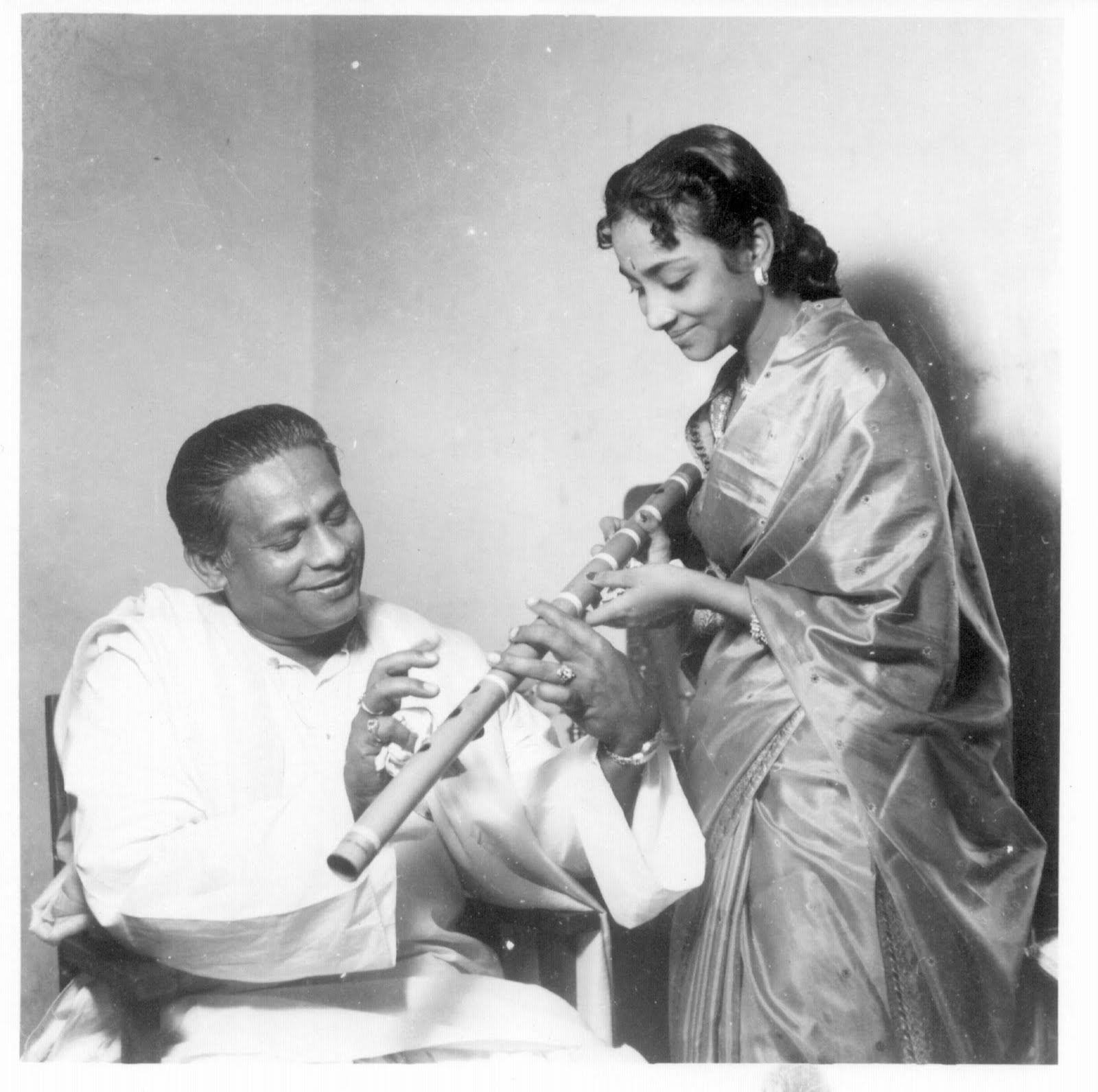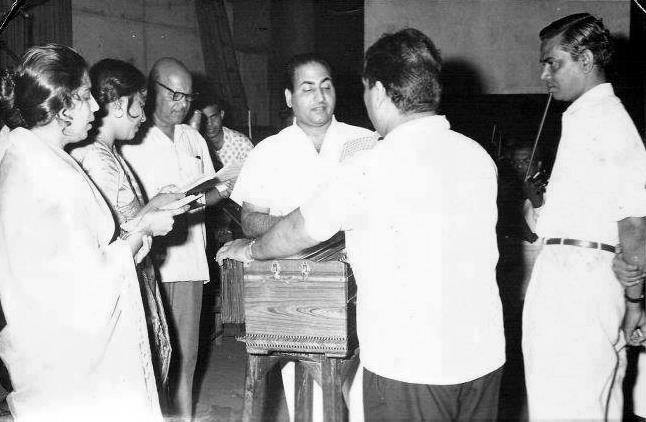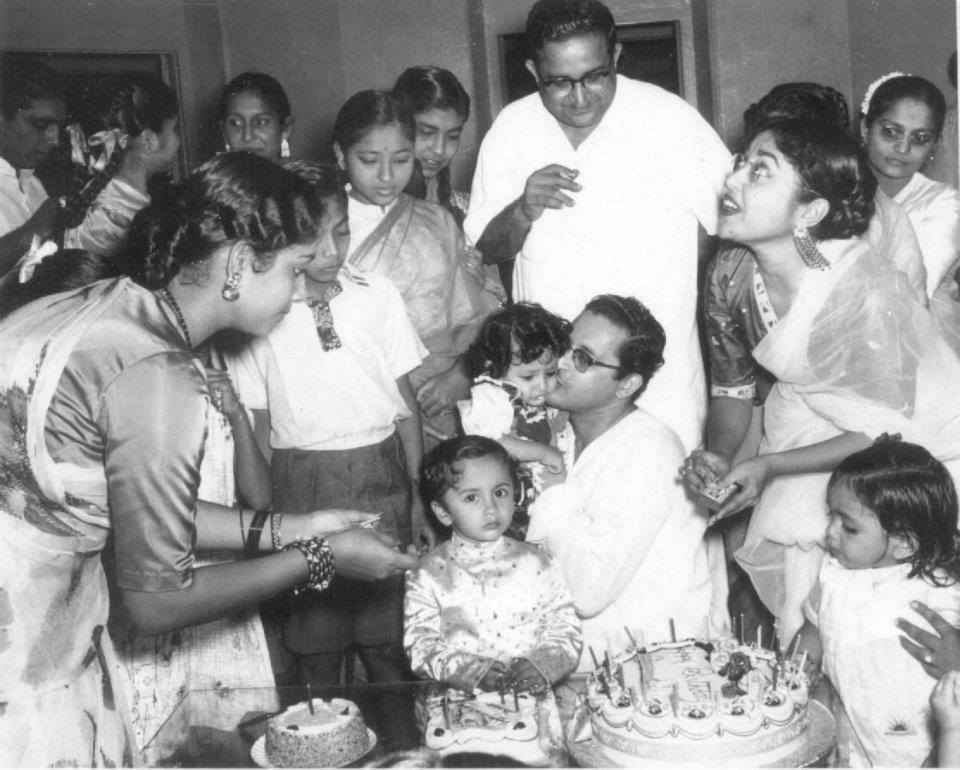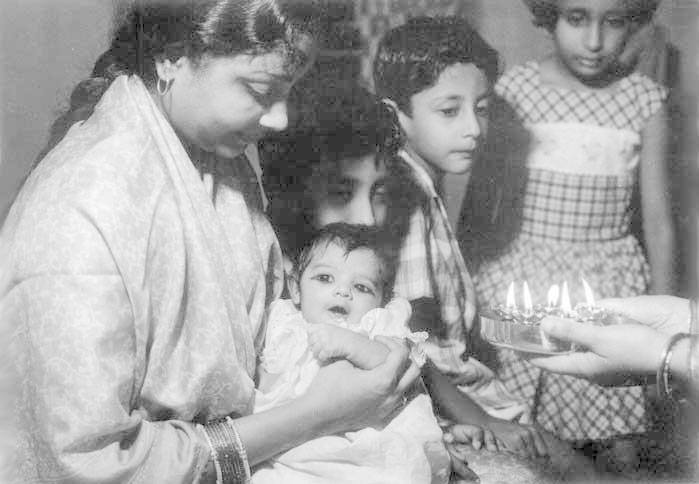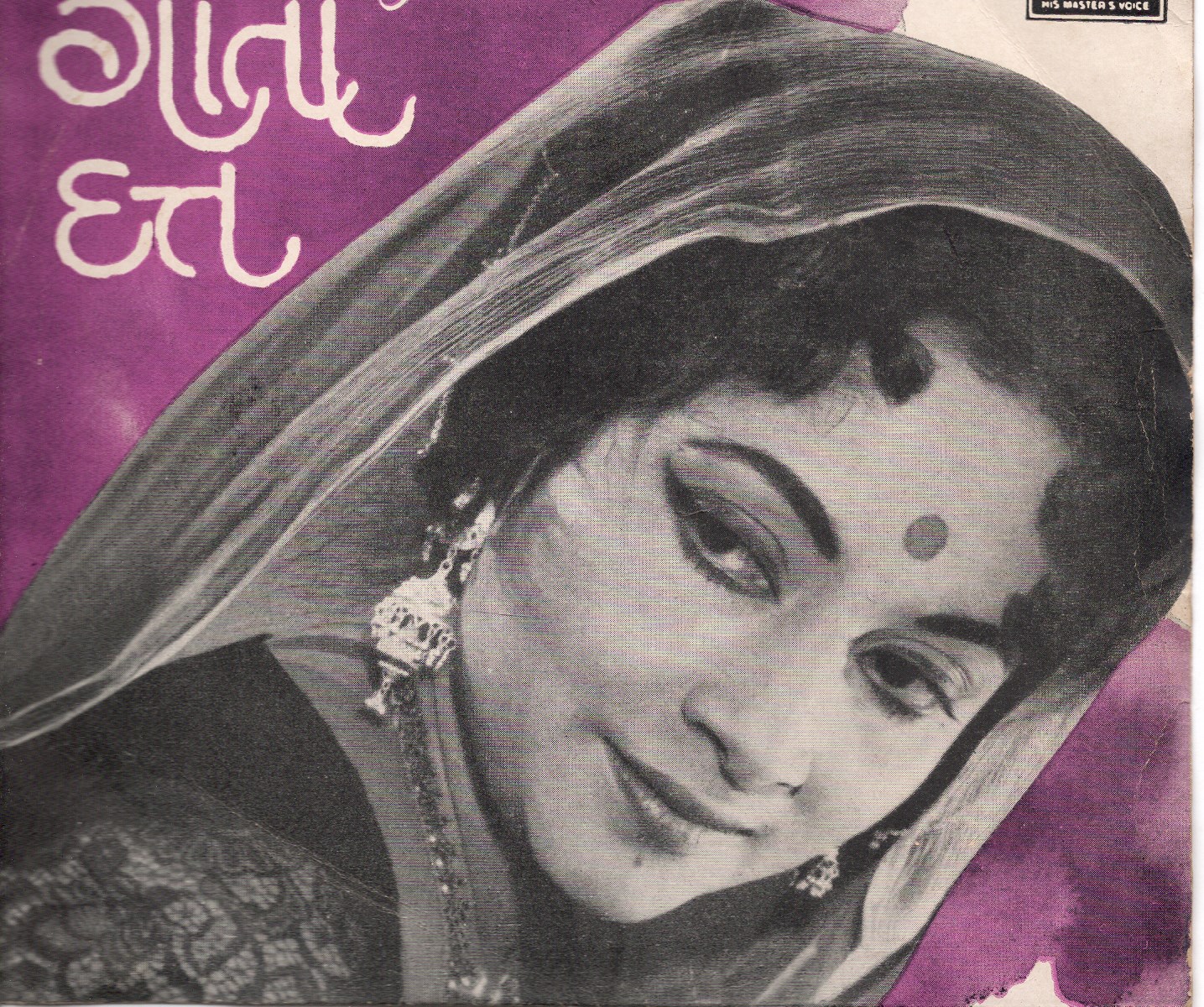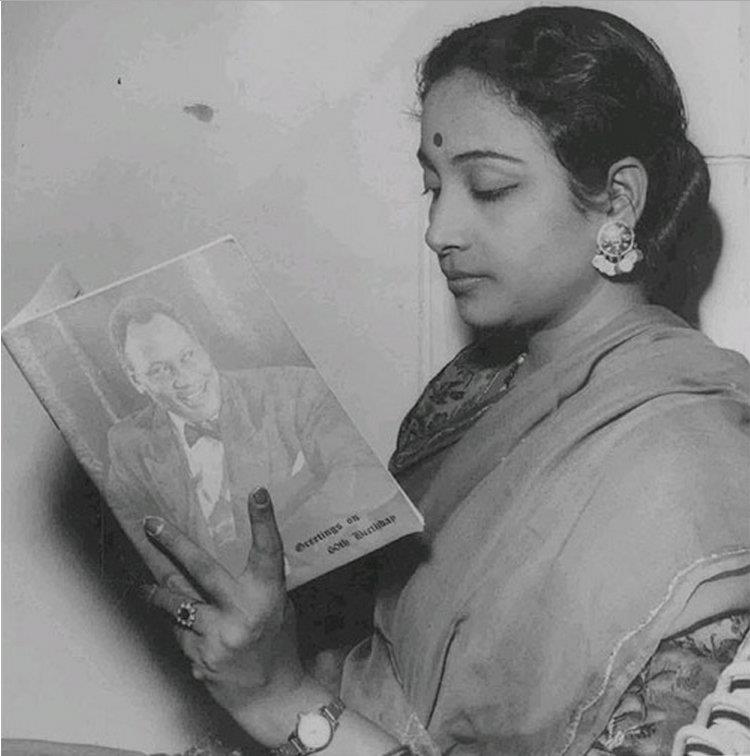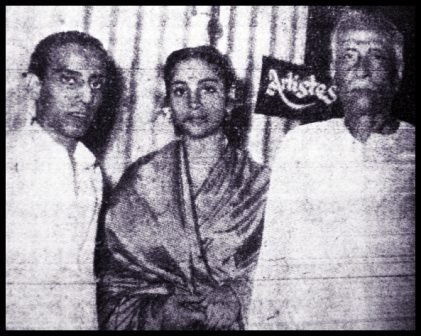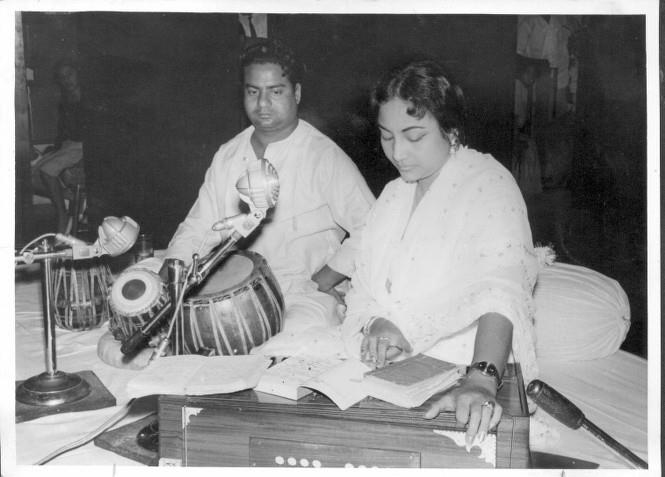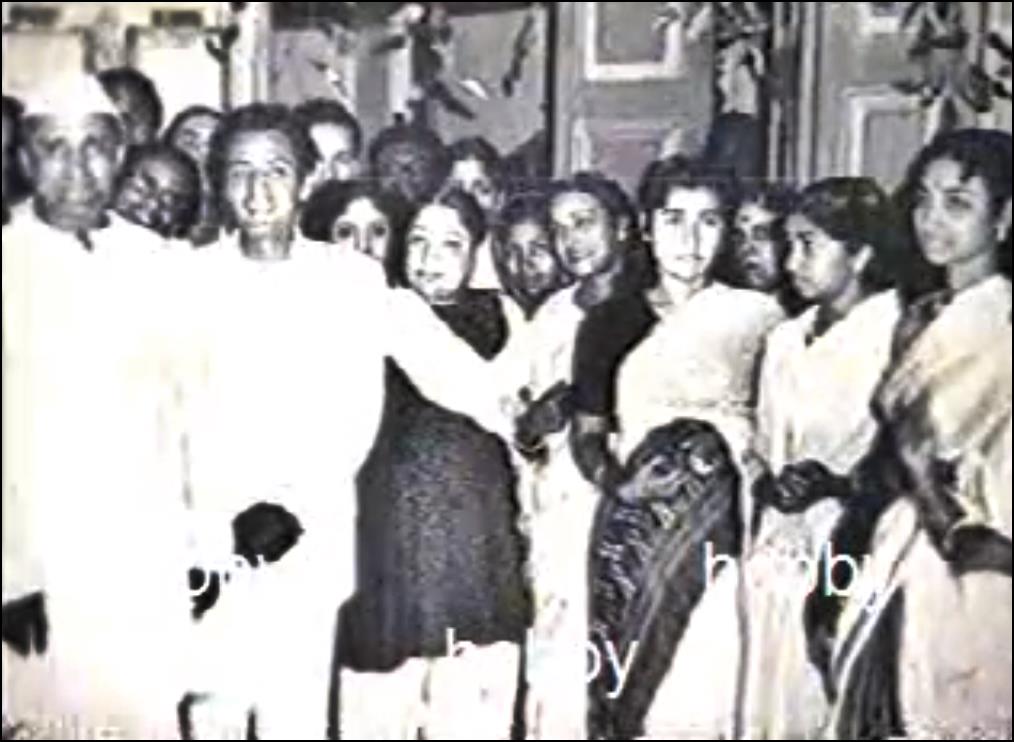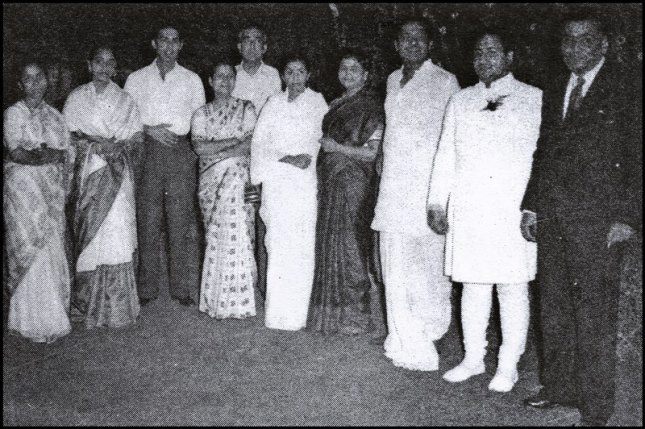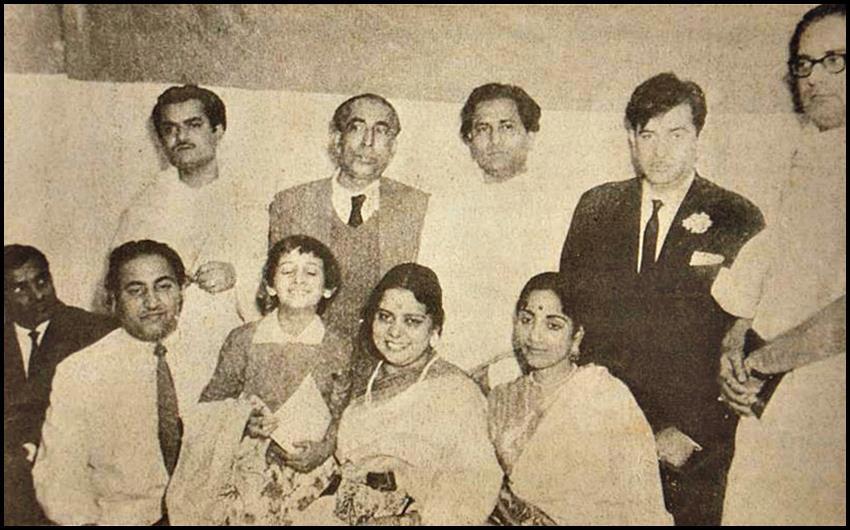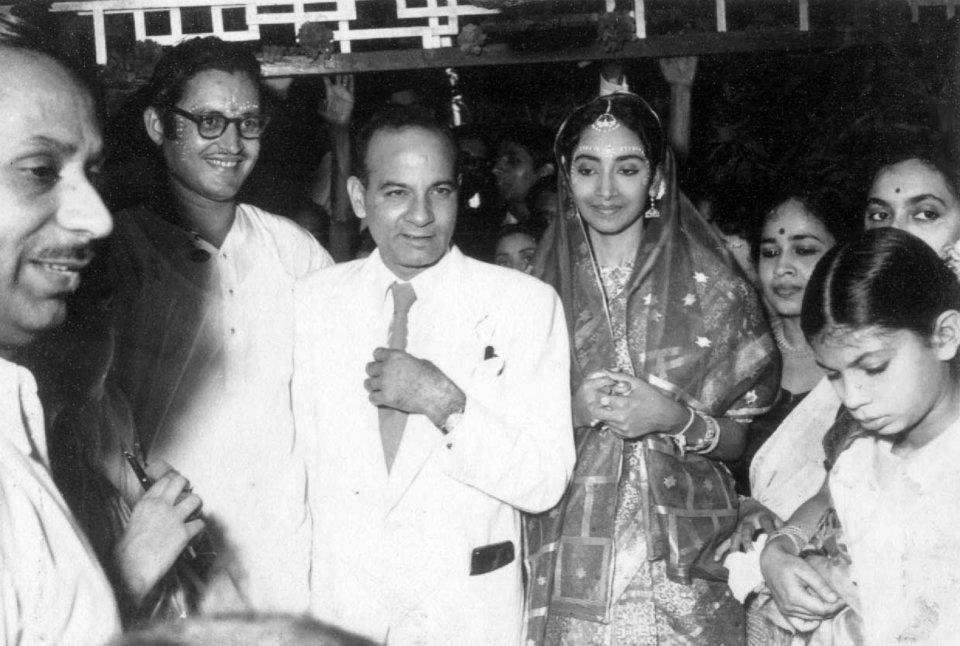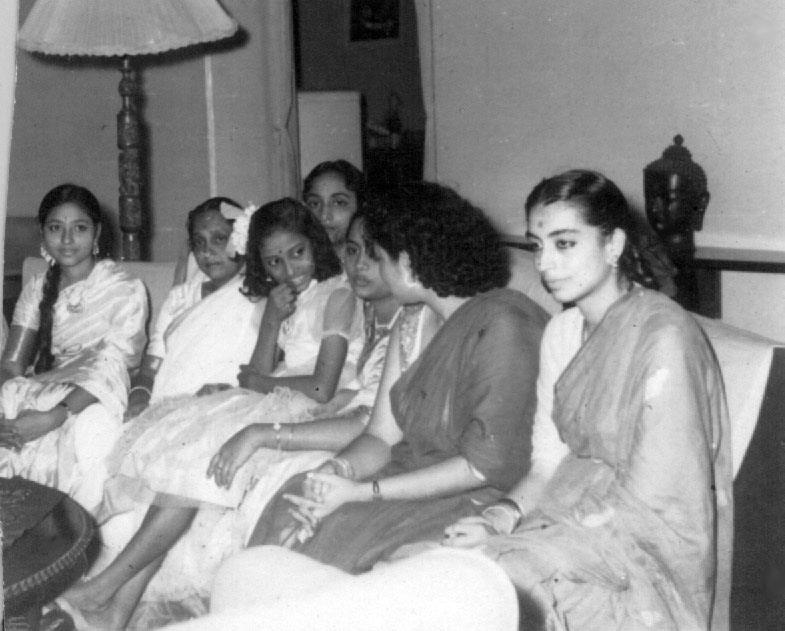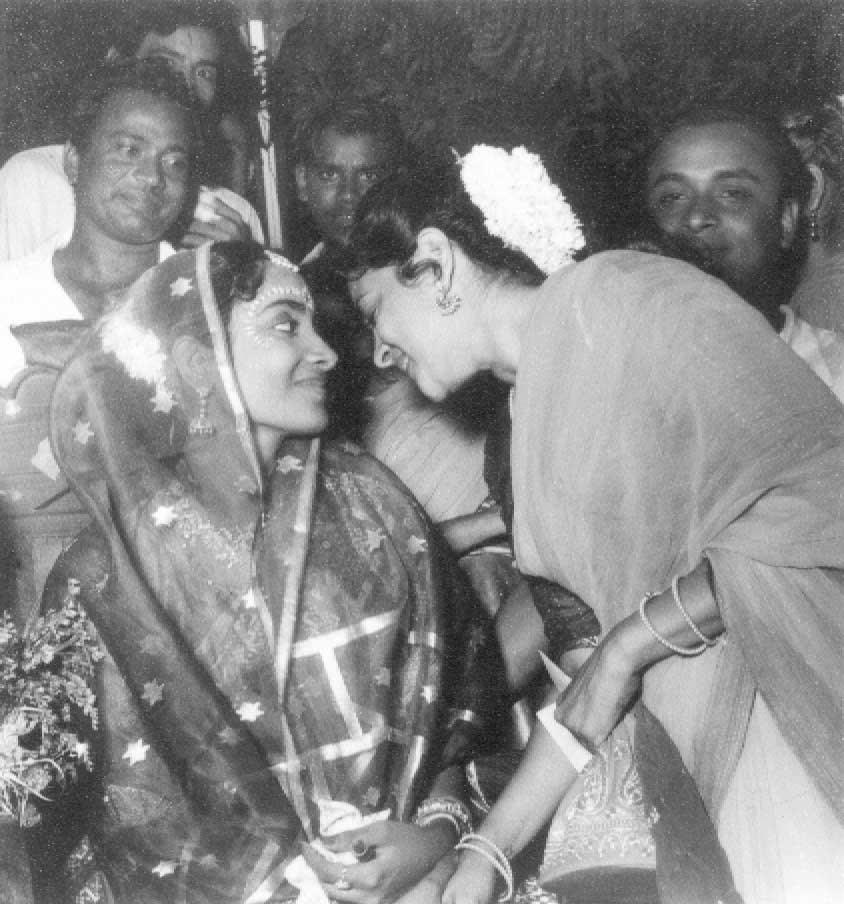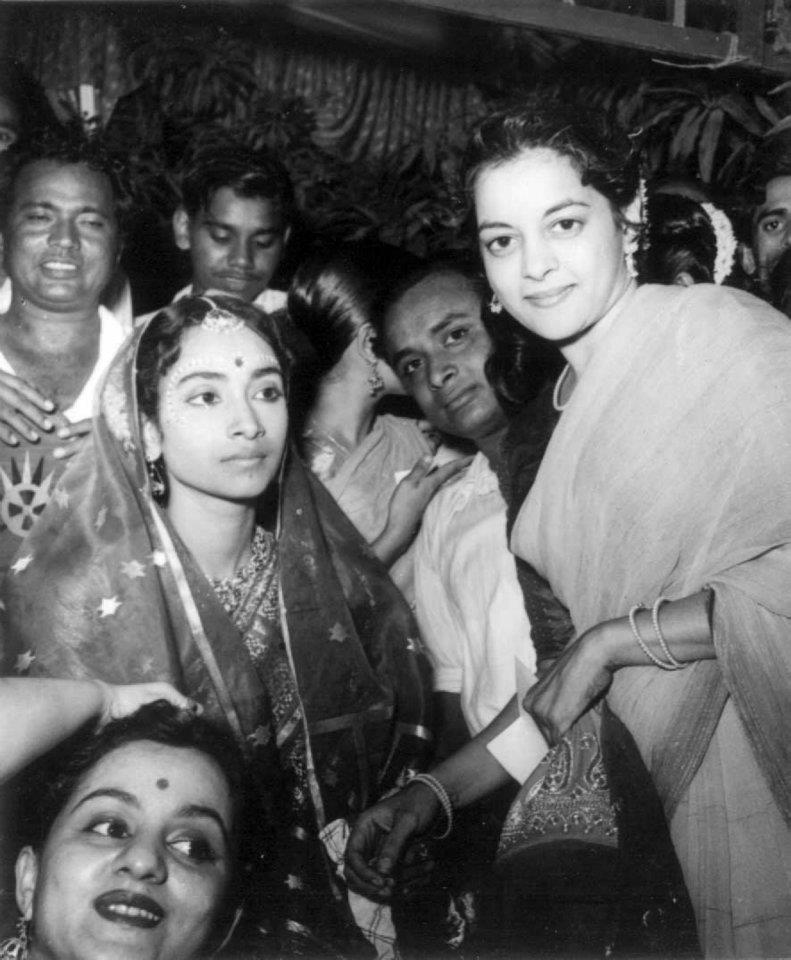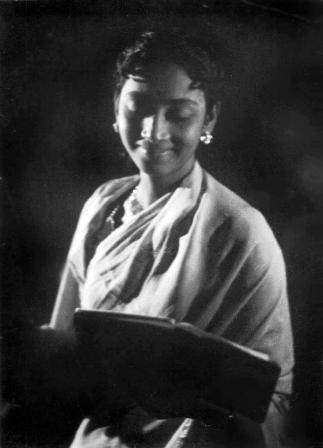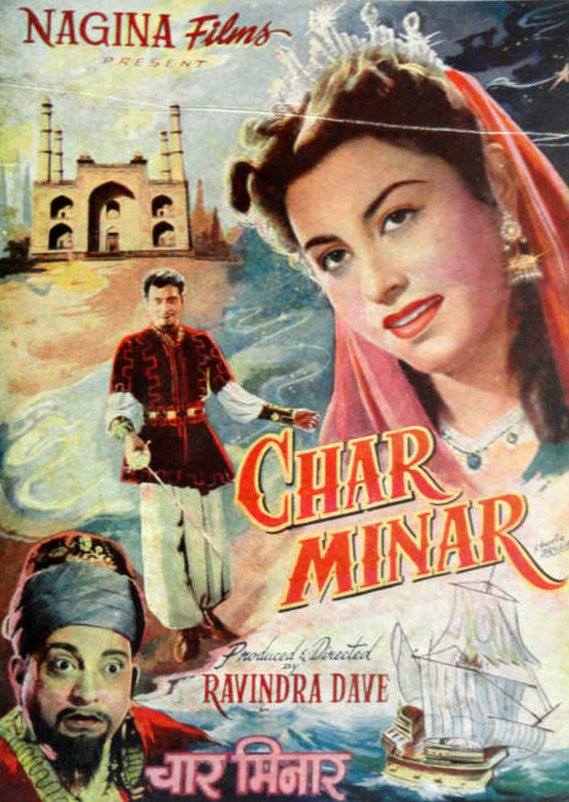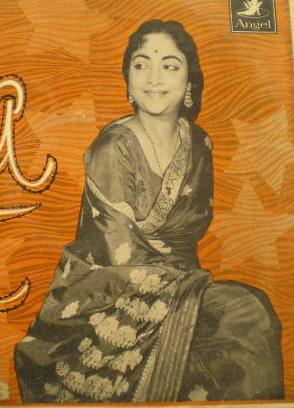
When one thinks about non-film music creations of the artists from the mainstream film playback singers, the prominent names that come to one’s mind are the great K L Saighal, Talat Mahmood, Manna Dey, Lata Mangeshkar etc. Some popular genres which have been sung by these singers are Ghazals and bhajans (devotional songs). In some instances, a singer began taking more non-film assignments when the film song assignments were reduced (mostly due to non-musical reasons), a notable example is Suman Kalyanpur who sang a good number of soulful songs (Bhaavgeet in Marathi) or Sulochana Kadam turning to Marathi film and non-film songs as Sulochana Chavan or Manna Dey singing a good number of non-film songs in the 70s.
Geeta Dutt nee Roy is rarely known to the music lovers for her contribution to non-film music. Neither in Bengali (her maatrubhumi) or in Hindi/Marathi (her karmabhumi) she was given ample chances to sing non-film songs. May be just a handful of us know that she has sung private songs in as varied languages as Hindi, Bengali, Marathi, Gujrati. Though lesser in numbers compared to her contemporaries, the melody component in her songs is no less. Though she has not sung many private Ghazals, instead her major forte was devotional songs and modern songs (Aadhunik gaan in Bengali). She sang devotional songs for Hinduism, Jainism and Sikhism and a few patriotic songs. From singing “naye zamaane mein hum aao naye taraane gaaye” for V Balsara to “Main toh ho gayi re teri shyaam”, her range, versatility and diversity is something that can be enjoyed and appreciated. This is an humble attempt to discuss and analyze some of her non-film songs.
Hindi songs:
Some of her most well known non-film songs are undoubtedly from Hindi, especially the song “haule haule hawaa dole” defines the epitome of her popularity in sugam sangeet. Pandit Nikhil Ghosh and Pandit Bharat Vyas created this magical song somewhere in the fifties and it captures the essence of her voice to the fullest. The reverse side of this 78 rpm record has the devotional song “jamuna ke teer kaanha aao” another well known song indicating her soulfulness, versatility and range. In addition to these two popular songs, Geeta sang close to a couple dozen more songs in Hindi based on the information we have so far. Most of the traditional non-film songs in late forties and fifties would be either bhajans or ghazals. Geeta has not sung much of pure ghazals but she has definitely sung some melodious bhajans. Listen to “Jamunaa ke teer kanhaa aao” or “Suni Kaanha teri baansuri, baansuri teri jaadu bhari”. The huge success of the bhajans of Geeta in the film Jogan (1950) might have had some influence in her singing these non-film bhajans. Both the above mentioned bhajans have deep expressions and have been soulfully rendered by Geeta.
Some of these songs (like Mere Sapnon Ke Raja and Yeh Reet Kahan Seekhi Mohan) are recorded in the mid/late forties and feature very young and sweet voice of hers. These two songs are composed by “Sursagar” Jagnmoy Mitra and have distinct flavor of the vintage era. In the early fifties, composer Gyan Dutt recorded the most beloved patriotic song “Vande maataram” and the famous bhajan “Raghupati raaghav raaja ram” in the voices of Geeta, G M Durrani and Pramodini Patkar/Desai. This team of composer-singers was working for the soundtrack of the film Dilruba (1950) and it was quite logical that they stayed together for this non-film compilation as well. For years, we were searching for the recording of these songs and found them a couple years ago at RMIM meet. She also sang some deeply devotional songs like “Rang daaro ji” and “Suni kaanha teri baansuri” probably sometime in the fifties. (Since we are not able to find record labels of most of her non-film songs, hence the period of recording is just a guess based on her voice and other factors). With maestro musician V Balsara, she created two magical songs : Yeh hawa yeh fiza yeh bahaarein and Gaaye gaaye gaaye, naye zamaane mein hum aao naye taraane gaaye. The honey-filled voice of Geeta creates a magic in both of these songs. Like his many other songs, these two gems composed by Balsara were influenced by western music and has great notes of piano, the instrument in which Balsara is considered an icon. Again these two are known to relatively fewer listeners.
The charm in these songs is the way she creates her magic, be it a bhajan, modern song or a love song. Composer G N Joshi (more about him in the section below as well) and Geeta teamed to create another melodious pair of songs : Sakhi sapne ki baat bataoon and Baaji bairan baasuriya. The former is a personal favorite with an authentic (but saatwik) Shringaar rasa showcase. In the song “kooke ambuvaa pe koyaliya” she sings Phaagan to another level of perfection. Geeta and her real life friend, Meena Kapoor, sang the song “Ja Ri Ladli” together but it’s audio is not available till date. The song “Chanda Hanse Hans Rahi Chandni” sung with Talat Mahmood also is elusive till date. Some other solo songs like “Daras Dev Na Prabhu ji” and “Premi Haar Hi Mein Hai Jeet” have met with the same fate.
With the ill-fate of personal problems she was going through, the singing assignments dried up in the mid-sixties. This was the time when she released an EP of Hindi Bhajans, composed by Shyam Sharma. All the four songs were filled with Krishna Bhakti and did receive a good reception. “Sunee kaanha teri baansuri, baansuri teri jaadu bhari” is the personal pick of this album for me. These were most likely the last non-film Hindi songs Geeta recorded.
For composer Shyam Babu Pathak (with whom she had a great association in the late forties and early fifties), she sang two Jain stavans : Bolo he Nemnath and Vandana karo jain veer ki. Again, not many have heard these melodious devotional songs.
Some analysts have mentioned as Geeta having recorded a large number of non-film Hindi songs in the 40s and 50s. Knowing of her popularity in those days, it seems very much possible. Like HFGK (Hindi film Geet Kosh), there is no Geet Kosh of non-film songs, hence this information needs to be validated. Within the gamut of the known and available Hindi songs of her, one can easily say that she did prove her title of “Queen of Bhaav Gaayki” in the limited opportunities she received.
Marathi songs :
Even though she spent close to thirty years (out of total 42 years) of her life in Mumbai, the capital of Maharashtra, the number of total Marathi songs she has sung ( as known so far) can be counted on the fingers of one hand. It is very obvious that the Marathi (film and non-film) composers were heavily biased against her for whatever reasons. All these years, only two non-film songs : Jaa sang Laxmana and Mukyaa manaache bol were known to most. This was a 78 rpm record released sometime in the fifties, both composed by G N Joshi and penned by Kavi Vasant Bapat. Geeta Dutt may not have a perfect Marathi accent (although she gets the retroflex sounds beautifully!) but she brings to the songs great ease of rendition and a rare depth of feeling – both hallmarks of her singing in any case. In my opinion, “jaa saa.ng lakshmnaNaa saa.ng raamaraajaalaa” is one of Geeta’s greatest songs in any language. Very recently, with help from SIRC (Society of Indian Record Collectors), we found another pair of her non-film songs, both composed by Nishikant Bharti. The songs are “Jai maartand jai malhaar” and “Ambabai cha jogwa“. The first song is about Malhari Martand( Khandoba) which is a form of Lord Shiva and is the ‘daivat’ of the Dhangar sect of Mahasrashtra..Waghya( male) and Murli ( female)are the devotees of Khandoba. The second song is about Goddess Ambabai (one of the several forms of Jaganmaata/Adi Shakti). The lady singing is Jogan and asking for alms in the name of the Goddess. The Devi jaagran concept is similar to Mataji jagran. The jogan is describing her attire and the whip she hits on her own body. Also talking about how powerful the Goddess from Tuljapur (holy place in Maharashtra). Once again, the Queen of Bhaav Gaayaki is at her best singing these devotional songs, sung in rustic and earthy style with the chorus. Again, just like Hindi songs, it might be possible that Geeta has sung some more songs in Marathi, but without authenticated information, her known output in Marathi is just these four songs.
Bengali songs:
Since I am not a native speaker of Bengali, I would prefer to quote about her Bengali songs from one of the articles from our website. Though I personally enjoy all of her songs, her Bengali songs have a special place in my heart. Here is what our dear friend Sujayita had to say about Geeta’s Bengali non-film songs: Geeta has a significant repertoire of non-film songs in Bangla, many of which were with composers Kanu Ghosh and Sudhin Dasgupta . We will look at these so-called adhunik songs now, taking up each composer in turn. Geeta Dutt’s most songs in Bangla are with Kanu Ghosh, about a dozen in total. She explored a variety of themes and styles in the songs that she recorded with him. Padma aamaar kohe kende kende was penned by Kanu Ghosh himself and has a folk-based melody; the river Padma laments the loss of her old familiars, the fishermen, the shepherd boys, the village women who used to live by her side. The song is reminiscent of the river songs popular all over Bengal. Tomaay dekhechhi tandrabiheen raater taaraay is a romantic song taht starts out with long drawn-out notes followed by a sudden unexpected picking up of pace; the overall effect is a very pleasant listening experience. Aakashjure shopnomaya is a fast-paced number and almost reminiscent of Salil Chowdhury in its treatment. Tomaar aashaay path cheye go is a quiet one and speaks of a devotion and submission which Geeta Dutt manages to put across very convincingly. She sings ‘je kokhono haaraay ni mon, bujhbe naa toe shey/ keno aamaar e din gonaa, tumi aamaar ke’(Those who have never lost their hearts would never know why I count the days as they go by and who you are to me) with a sadness and conviction that is very poignant. On the other hand, kobe kon taara jwala raater chhayaay, another romantic piece, because of the westernized score and Geeta Dutt’s treatment of it, sounds absolutely different and fresh. She infuses ogo aamaar moner chiro aanmona with playfulness and energy that makes this piece a great listening experience. On the other hand, kathaa aachhey aaj tumi aashbey, even though a song of hope and anticipation, manages to sound sad and insecure; in fact, it is this exploration and contrast between the theme and execution of the songs in question that makes these songs more interesting to listen to. The most famous song that Geeta Dutt sang for Kanu Ghosh has to be oi shur bharaa dur nilimaay, a melodious and happy celebration of love. Her stress on the starting ‘oi’ for the first sentence is a treat to listen to. aayre chhutey kaastey haate is a fast-paced song about reaping the golden grain, a song of farmers and their life, their devotion to the land and the joy that they take in the waving fields of paddy. Salil Chaudhury penned two songs which were scored by Kanu Ghosh and sung by Geeta Dutt. Jaak naa muchhe jaak has conventional lyrics about memories and nostalgia but the more interesting of the two is shonaay dheke ongo which shows Salil’s ironic pen. It is a comment on the ephemeral nature of wealth and materialism. With a play on words, Salil says how it is more important to listen to good words than wear gold on the ear, both words being shonaa in Bengali.
Geeta Dutt’s songs with Sudhin Dasgupta are all immensely popular and the melodic content is experimental in nature. Otho otho Maa Gouri treats a subject very close to the hearts of all Bengalis, that of the daughter (Gouri/Durga) going back to her husband’s home. The theme is the subject of innumerable folk songs and in this song too, the anxiety of Menaka is conveyed. ekTu chaoaa aar ekTu paaoaa is a haunting melody and Geeta puts across a feeling of nostalgia and sadness without any effort.The rest of the songs have an overwhelming focus on nature and draw similes based on nature. In kajol kajol kumkum, autumn is being described but the melody line of the song is definitely unconventional. Jhiri jhiri chaitali baataashe is a lovely romantic number, rhythmic and modern in feel. Krishnachura aagun tumi is a paean to spring using the Krishnachura flower as a representative. Phooler boney laaglo je dol again describes her joy and draws a parallel with a garden and its beauties.
With Binod Chatterjee, she recorded four songs, of which hridoy aamaar kichhu jodi boley is a lovely piece of melody, not too distinguished by lyrics, but carried through because of the strength of the tune. Shudhu ekbaar boley boley is meant to be a song of sadness and separation, but the melody is strangely upbeat, so it is up to the listener to decide whether they like it or not. She sings of the sorrows and sad memories of love in jaanite cheyechho tumi and on a similar vein, in maatir bhubone jodi she gives voice to the desire to come back to the earth and give back and receive the love that she was forbidden this time, to sing the songs that she couldn’t sing this time around. This song, with minimal accompaniment, is quite arresting in spite of its simplicity.
Geeta Dutt had sung a few Hindi songs for her brother Mukul Roy and she also sang four songs for him in Bangla. In ek khaani dustar lojja, she gives voice to the embarrassment that the young girl feels when she suddenly realizes that she is a grown woman and feels the first stirrings of love. Sachi mata go draws on the life of Vishnupriya, the wife of Chaitanyadeva of Nadia. She tells Chaitanya’s mother Sachi how she has been separated from her husband in all the four mythological yugas having reincarnated as Satyanarayani, Seeta, Radha and Vishnupriya. ekTi kamal phootechhilo is a song of loss of love. Bhober kheyaa ebaar baaoaa is based on kirtans and conveys her joys at finally having done with the burdens of her life and how she is looking forward to shedding the pains of this life and moving on. This is a meaningfully and beautifully done song.
With Anal Chattopadhyay she had recorded two songs, very different from each other. Krishnanagar theke aami Krishna khujey enechhi is a fast-paced song, referring to the earthen dolls that are the specialty of Krishnanagar in Nadia district of West Bengal. The song describes the beauty of the Krishna idol that has been brought from Krishnanagar and how it is very close to the heart of the singer. The other song is kato gaan haaraalaam, a sweet and lovely song of love and separation, very lovingly emoted.There are two more songs that Geeta Dutt sang in Bangla, composed by Nirmal Chakraborty. Ei toe holo parichay is a simplistic tune while bhulite je paarinaa at a slower pace, is reminiscent of songs from old Bengali films. Sudhirlal Chakraborty’s rajani pohaalo sakhi, penned by Pabitra Mitra has the singer pining for Krishna as a lover and describes the pain and anxiety of separation from him. This song has an old-world charm and quite likeable.
Geeta Dutt’s Bengali non-film output is not very massive, but again, it is characterized by variety and amazingly versatility of treatment.
Gujrati songs:
In the late forties and fifties, Mumbai was the place for Gujrati film makers. With her wonderful association with Avinash Vyas, the doyen of Gujrati film music, Geeta sang close to a hundred songs in Gujrati, even more than her mother tongue Bengali. Based on our information, many of these songs are from films. She sang two lovely Krishna Bhakti songs “Kaanuda taari moraliye maaru man mohyu” and “Haali haali gowalani aaj Gokulye rang ramawaa”, penned and composed by Ramesh Gupta. Her diction and pronunciation in Gujrati may not be perfect from purist’s viewpoint, but instantly strikes a chord with the listener’s heart. We recently found (again thanks to SIRC), two bhajans for Maataji sung by her – Amba maa na naurataa and Maataji no tenu aavyu. The dedication and devotion in her heart easily comes out through her voice. Among the other (known) non-film songs by her are : Mane ker kaato vaagyo, Maaru mann eklu naache re , Albelo rasiyo phaagan aayo, Panhihaari ho panhihaari ho, Pardeshi Pankhine Sange Jeevan Halyu Jay, Phoolda Lyo Koi Phoolda Lyo, Tare Re Sathwaro Hari Ramno.
Punjabi songs:
With help from SIRC, we discovered the two Punjabi Shabads (Sikh Devotional songs) Geeta sang for composer S Mohinder after taking permission from Shiromani Gurdwara Parbandhak Committee (SGPC). The word “shabad” literally means “word”. As such it represents the verbal description of the nature of God. This is generally from the Guru Granth Sahib which is the holy book of the Sikhs. The shabad is also referred to as “Gurbani” which literally means “Message of the Teacher”. Geeta Dutt has sung the following shabads: Kaahe re ban khojan jaai and Ram siun kar preet re man kar.
Since I am not a native Gujrati or Punjabi speaker, I would love some one to add more details about these songs.
In all, the total number (known so far) of non-film songs sung by Geeta in all the languages (Hindi, Bengali, Marathi, Gujrati and Punjabi) is close to a hundred. Looking at her career of 1945-1972, this is relatively small number. Since Geeta always believed in quality, rather than quantity, why don’t we do the same and enjoy her limited but vastly rich melodious non-film song output.
Acknowledgements:
1. Abhay Phadnis – Marathi songs
2. Chetan Vinchhi – Gujrati songs
3. Sujayita Roy and Sounak Gupta – Bengali songs
4. Various contributors on Hamara Forums, Facebook and our website http://www.geetadutt.com/
I am thankful to Shri Ripudaman Magon ji who took an initiative on this and persuaded me to write this special article on Geeta ji’s non-film songs. This was first published on Facebook in the “Swar Sutra” group here https://www.facebook.com/groups/SwarSutra/
